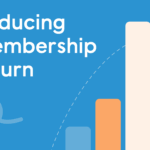You’ve likely heard of micro-volunteering, and possibly even micro-learning. But have you ever heard of (or thought about) micro-mentoring?
Mentoring programs, like all programs, come with their fair share of challenges. One of the biggest, though, is the long-term follow-through required of both parties (the mentor and the mentee).
And that’s when micro-mentoring comes into play.
What is micro mentoring?
Micro-mentoring is just what it sounds like: It’s a short-term mentoring relationship. Micro-mentoring opportunities can last a few hours, a few days, or even a few weeks.
But the point is, they’re void of that long-term commitment commonly associated with traditional mentoring.
The value of micro mentoring
Everyone can benefit from mentoring. But you may be looking for help with a specific opportunity, question or challenge that you’re facing at work. If you only need help with a specific task or in a single instance, you may feel bad reaching out and building a relationship.
Mentoring has a reputation for being a long-term thing. And while networking and maintaining connections is really valuable, the pressure to maintain that mentor-mentee relationship should not exist.
Examples of micro mentoring
Micro-mentoring opportunities can take a number of forms. The two most common are at conferences and at mentoring events.
Conference buddies
If your organization hosts an annual conference, consider pairing interested parties for the span of that event only. On the event registration form, have your members check whether they’d be interested in serving as a mentor or being paired with a mentor. (But make it clear they’re not required to check either.) Based on the responses you get, your organization could then pair attendees accordingly.
NOTE: There’s always a chance that you might have more members interested in being a mentee than you have interested in serving as a mentor. To manage expectations, consider adding a brief note explaining that the execution of this program will all depend on the interest level. That way, you’re not left scrambling trying to figure a mentor/mentee shortage out on top of trying to plan the actual conference!
Another option is to pair two members with a mentor. It gives your members an opportunity to meet other new members, doubling up on the number of mentees you can help and it’s still extremely manageable for a mentor.
Standalone mentoring events
You’ve heard of speed networking and brain dates, right? Well, standalone mentoring events kind of fall in that same wheelhouse. Again, you could ask your members to express interest either serving as a mentor or being paired with a mentor. But then from there, you could either pair members one-on-one or even several-on-one via roundtables. (Think a roundtable of five featuring one senior-level professional and four young professionals. Nothing wrong with that!)
But the point is, for that one hour (or whatever the time span may be), the mentees could pick the mentors’ brains a little. They could ask for advice and a little professional guidance.
Once the event is over, that’s it. The attendees could exchange business cards and stay in touch (as they could at any other networking event), but they’re not required to.
Other examples
Other common examples of micro mentoring or topics that could work well for micro mentoring include:
- Job application and interview prep
- Soft skill development like public speaking, interviewing, etc
- Hard skill learning like email writing, specific program knowledge, etc.
- Setting career goals
- Handling workplace challenges
- Skill building on mentoring others
- Exploring your association benefits
Organizing a mentorship program
If you are intersted in facilitating micro mentorship between your members and mentors, our guide to building a mentorship program can help.
Micro mentoring
Micro mentoring lets you provide the VALUE of a mentorship without the need to manage an entire mentoring program. If you’re new to mentorship and building mentor programs, it’s a great way to dip your toes in and get a sense of your members’ interest.
Whether you’re hosting a standalone micro-mentoring event or including it as an add-on to one of your existing events (your annual conference, for example), the key to success is getting the word out there. For a few event promotion tips, check out our free guide below!

















